若要判斷 Property 是否包含指定 String,Ramda 並沒有提供類似 propEq() 那樣直接的 Function,但我們可自行組合出 propIncludes()。
Version
macOS Catalina 10.15.6
Wink-fp 1.23.2
Imperative
let data = [
{ title: 'FP in JavaScript', price: 100 },
{ title: 'RxJS in Action', price: 200 },
{ title: 'Speaking JavaScript', price: 300 },
]
// f :: String -> [a] -> [a]
let f = s => a => {
let result = []
for(let x of a)
if (x.title.includes(s))
result.push(x)
return result
}
f('JavaScript')(data) // ?
Imperative 會使用 for loop,藉由 String.prototype.includes() 判斷指定是否存在,若存在則加入 result array 回傳。
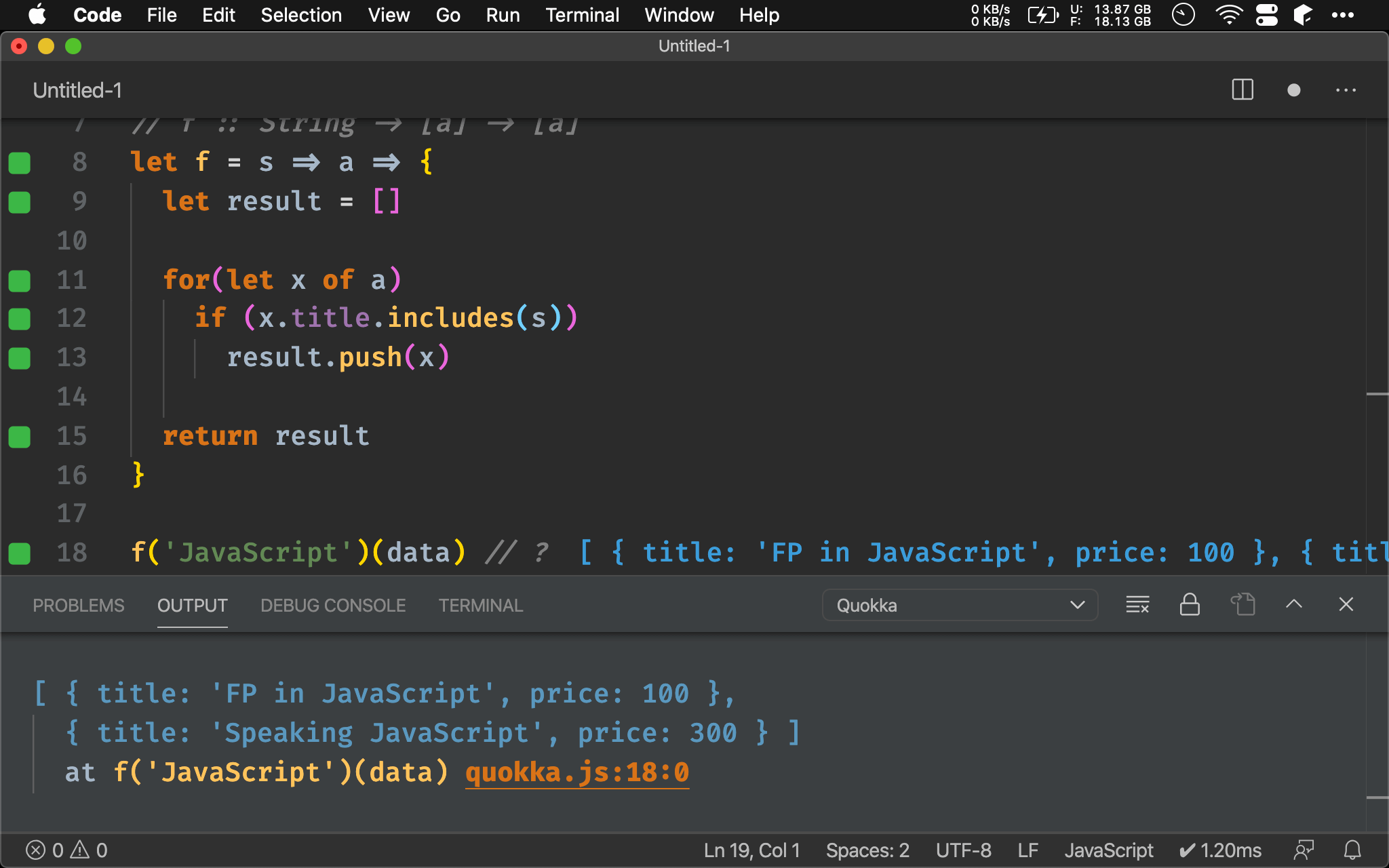
String.prototype.includes()
let data = [
{ title: 'FP in JavaScript', price: 100 },
{ title: 'RxJS in Action', price: 200 },
{ title: 'Speaking JavaScript', price: 300 },
]
// f :: String -> [a] -> [a]
let f = s => a => a.filter(x => x.title.includes(s))
f('JavaScript')(data) // ?
第 7 行
// f :: String -> [a] -> [a]
let f = s => a => a.filter(x => x.title.includes(s))
也可使用 ECMAScript 的 filter() 搭配 includes() 求得。
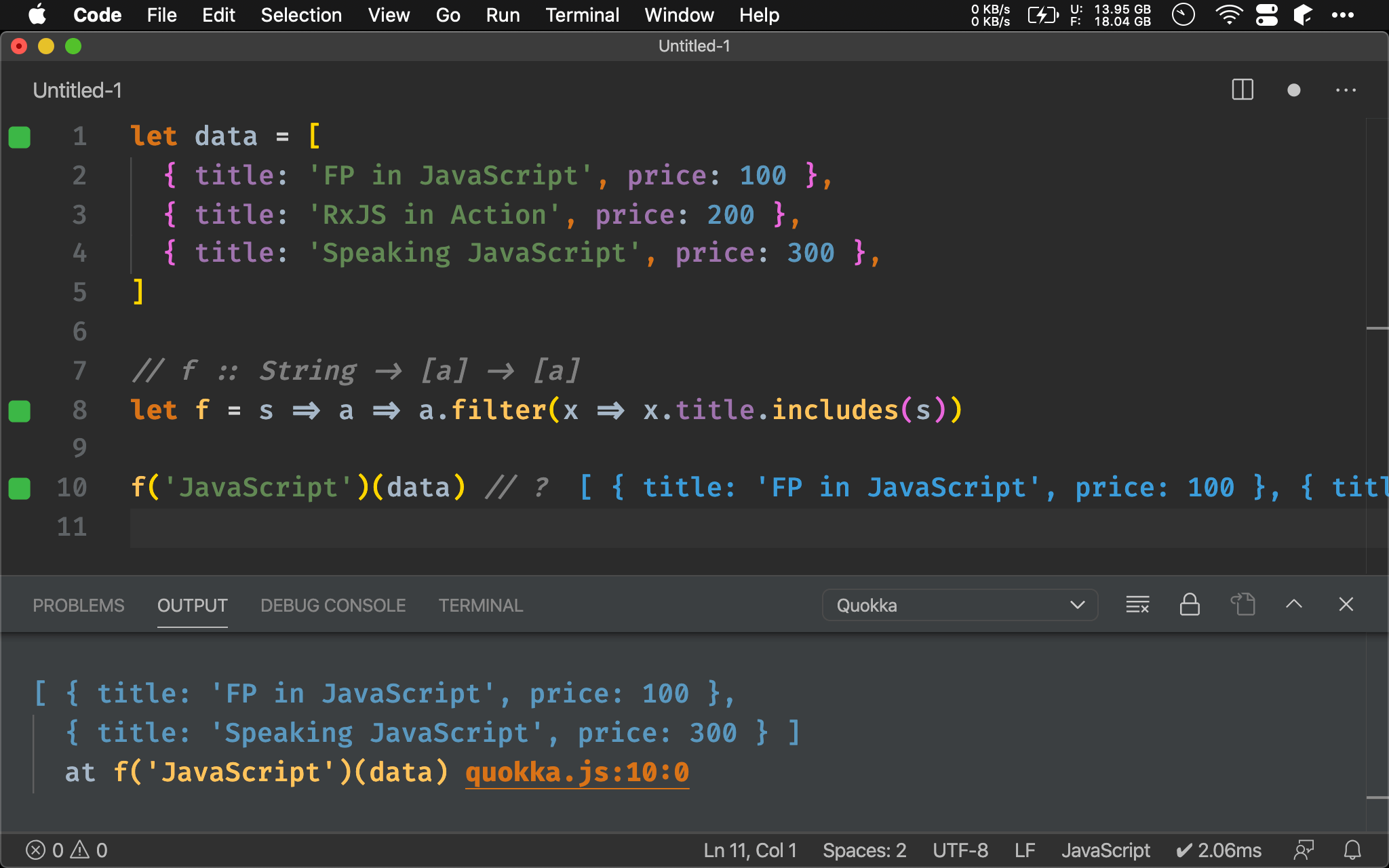
propSatisfies()
import { propSatisfies, includes, filter } from 'ramda'
let data = [
{ title: 'FP in JavaScript', price: 100 },
{ title: 'RxJS in Action', price: 200 },
{ title: 'Speaking JavaScript', price: 300 },
]
// f :: String -> [a] -> [a]
let f = s => filter(propSatisfies(includes(s), 'title'))
f('JavaScript')(data) // ?
第 9 行
// f :: String -> [a] -> [a]
let f = s => filter(propSatisfies(includes(s), 'title'))
Ramda 亦提供 filter() 與 includes(),但若要使 filter() 能 point-free,則必須搭配 propSatisfies(),整體可讀性較差。
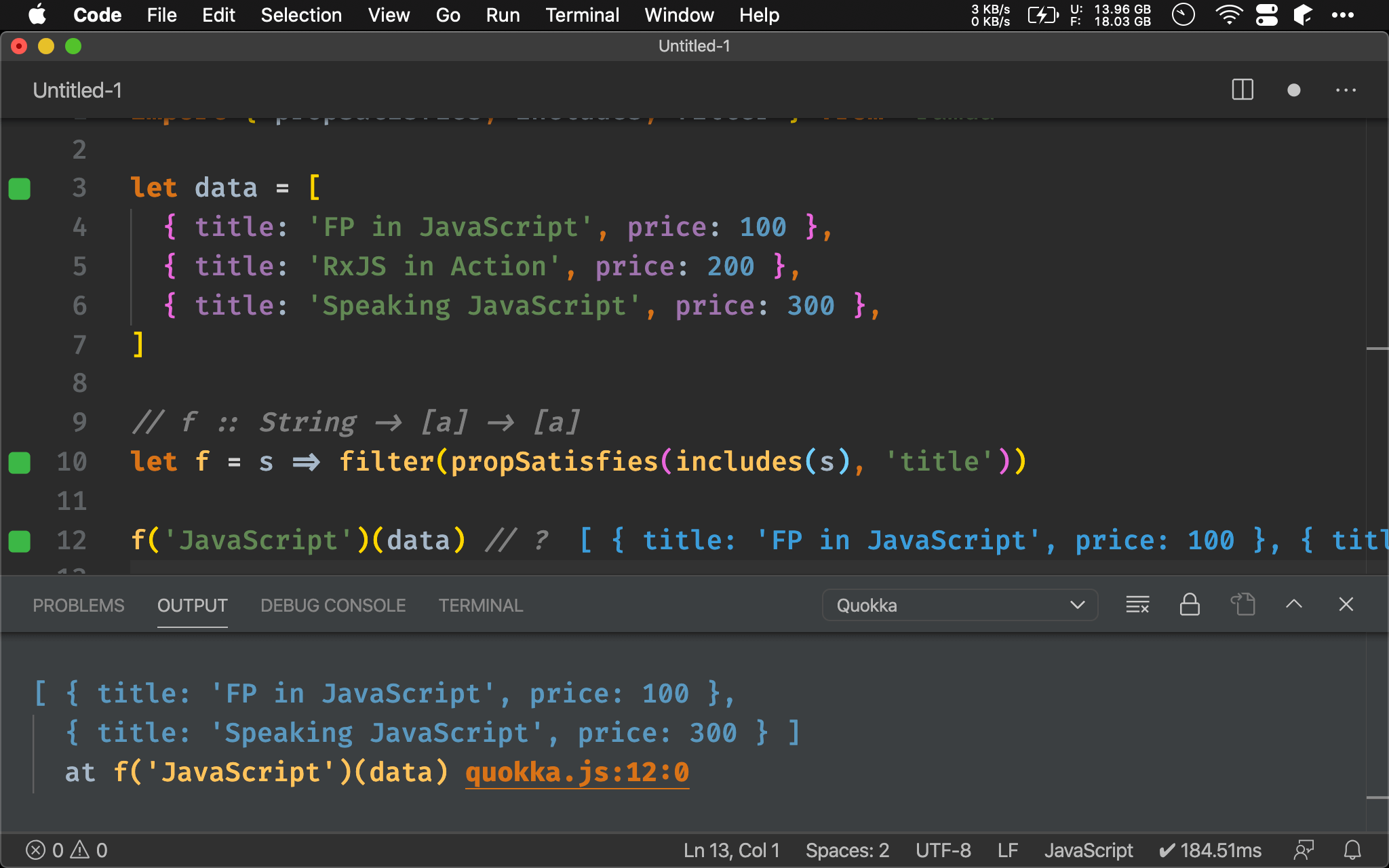
propIncludes()
import { includes, filter, curry, useWith, prop, pipe, chain, ap, flip } from 'ramda'
let data = [
{ title: 'FP in JavaScript', price: 100 },
{ title: 'RxJS in Action', price: 200 },
{ title: 'Speaking JavaScript', price: 300 },
]
// propIncludes :: (k, v) -> {k: v} -> Boolean
let propIncludes = (k, v) => o => includes(v, prop(k, o))
// f :: String -> [a] -> [a]
let f = s => filter(propIncludes('title', s))
f('JavaScript')(data) // ?
12 行
// f :: String -> [a] -> [a]
let f = s => filter(propIncludes('title', s))
若能提供類似 propEq() 的 propIncludes(),則可讀性更高。
第 9 行
// propIncludes :: (k, v) -> {k: v} -> Boolean
let propIncludes = (k, v) => o => includes(v, prop(k, o))
使用用 prop() 取得 value,再使用 includes() 判斷。
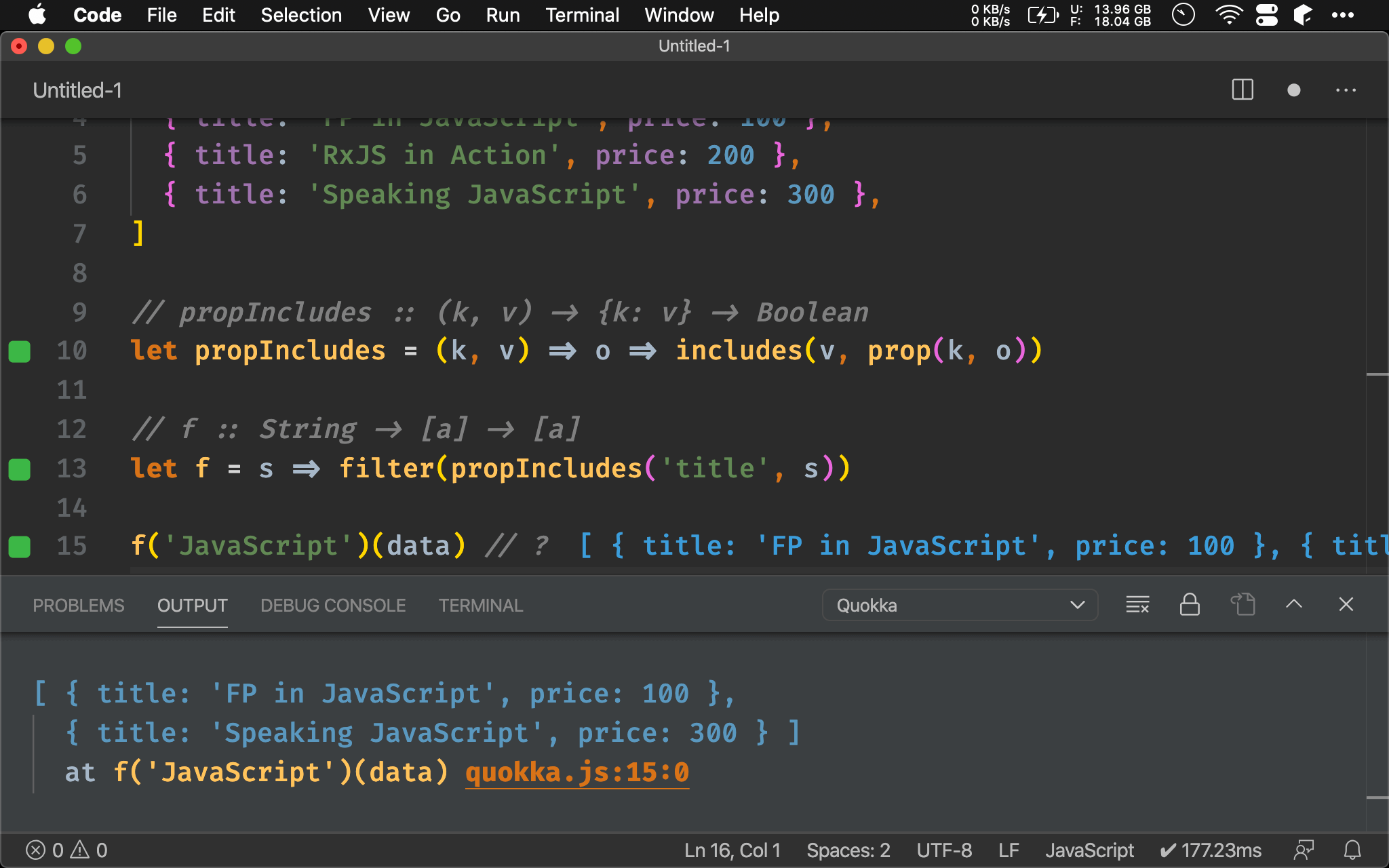
Point-free
import { includes, filter, curry, useWith, prop, pipe } from 'ramda'
let data = [
{ title: 'FP in JavaScript', price: 100 },
{ title: 'RxJS in Action', price: 200 },
{ title: 'Speaking JavaScript', price: 300 },
]
// propIncludes :: k -> v -> {k: v} -> Boolean
let propIncludes = useWith(
pipe, [prop, includes]
)
// f :: String -> [a] -> [a]
let f = s => filter(propIncludes('title', s))
f('JavaScript')(data) // ?
第 9 行
// propIncludes :: k -> v -> {k: v} -> Boolean
let propIncludes = useWith(
pipe, [prop, includes]
)
亦可使用 useWith() 使其 point-free。
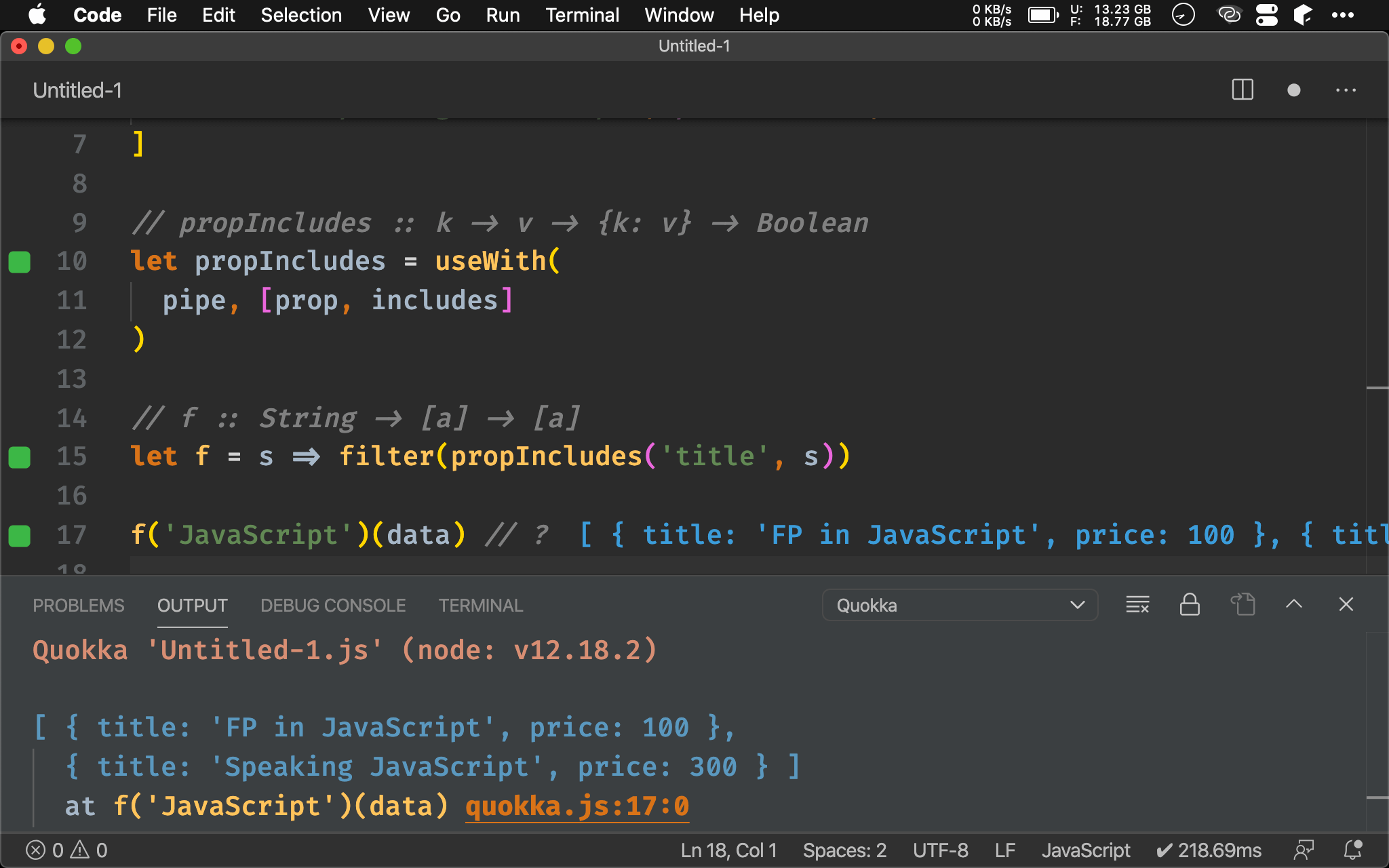
Wink-fp
import { propSatisfies, includes, filter } from 'ramda'
import { propIncludes } from 'wink-fp'
let data = [
{ title: 'FP in JavaScript', price: 100 },
{ title: 'RxJS in Action', price: 200 },
{ title: 'Speaking JavaScript', price: 300 },
]
// f :: String -> [a] -> [a]
let f = s => filter(propIncludes('title', s))
f('JavaScript')(data) // ?
Wink-fp 已經內建 propIncludes() 可直接使用。
propIncludes()
k -> v -> {k: v} -> Boolean
判斷指定 String 是否在 Object 的 Property 內
k:指定 property 的 key
v:指定 String
{k: v}:data 為 Object
Boolean:回傳 Boolean 結果
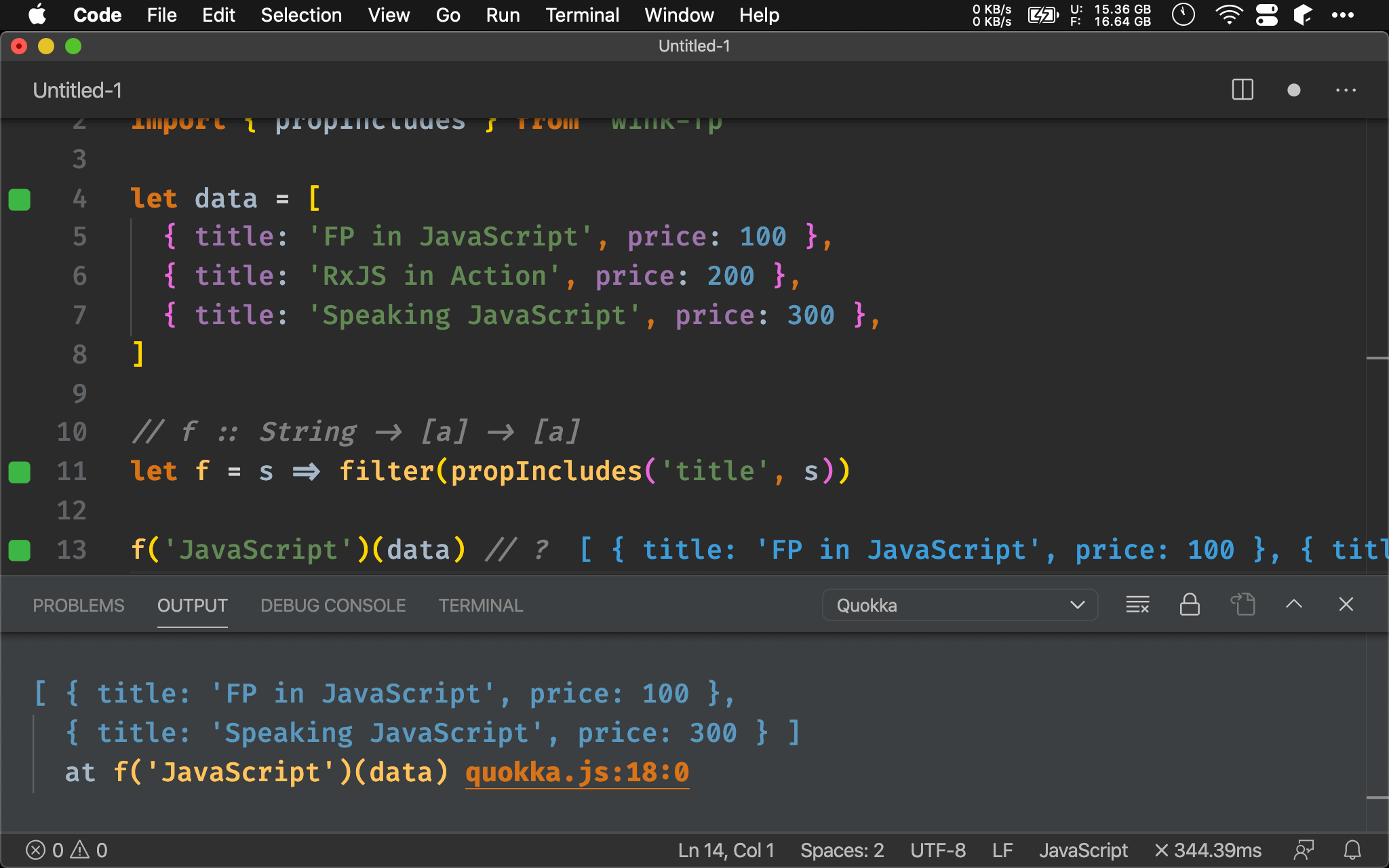
Function Pipeline
import { propSatisfies, includes, filter, pipe } from 'ramda'
import { propIncludes } from 'wink-fp'
let data = [
{ title: 'FP in JavaScript', price: 100 },
{ title: 'RxJS in Action', price: 200 },
{ title: 'Speaking JavaScript', price: 300 },
]
// f :: String -> [a]
let f = pipe(
propIncludes('title'),
filter
)
f('JavaScript')(data) // ?
第 10 行
// f :: String -> [a]
let f = pipe(
propIncludes('title'),
filter
)
可使用 pipe() 串起 filter() 與 propIncludes() 使 f() 能 point-free。
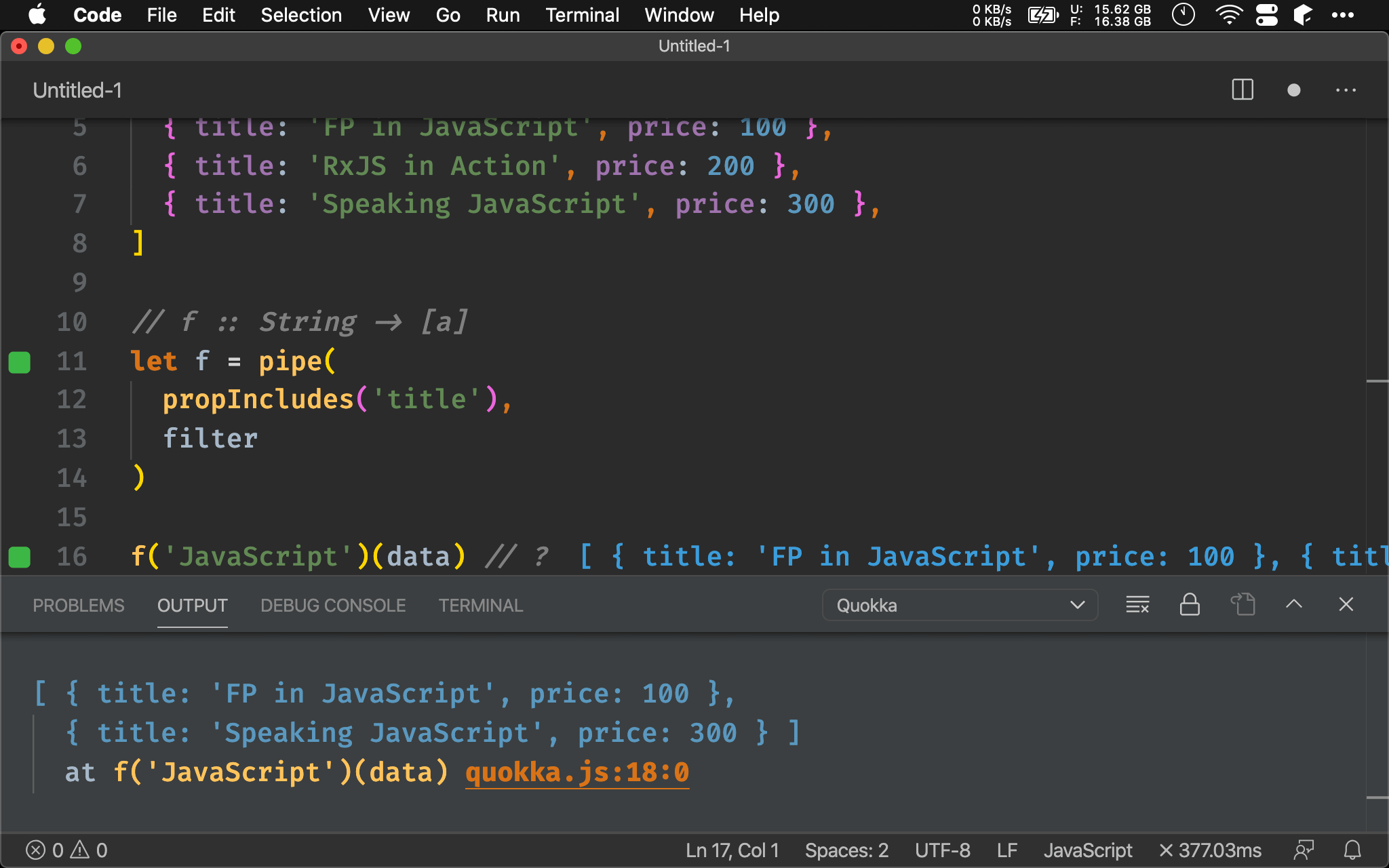
Conclusion
- 對於 Object 的 predicate,Ramda 只提供了
propEq(),但因為 FP 很靈活,因此我們可以自行組合如propGt()、propGte()… 等類似 function 方便產生 predicate